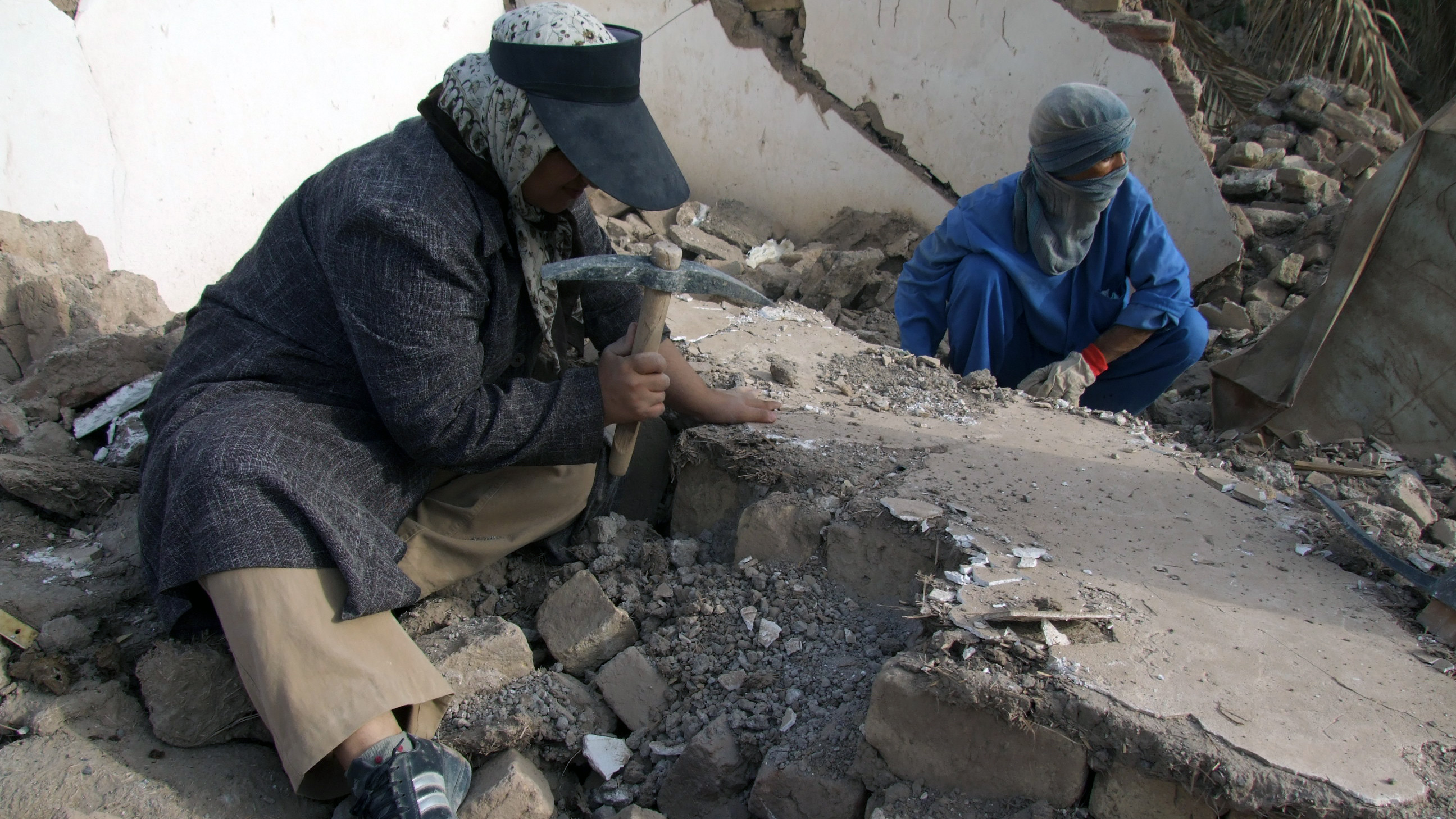Scholars at Risk: Archaeologist Leila Papoli-Yazdi left Iran for Sweden

Leila Papoli-Yazdi came to Malmö University through the Scholars at Risk initiative. The picture is taken in Kalmar where she lives with her family.
Leila Papoli-Yazdi was unable to continue her career as a researcher in her home country of Iran. With the help from Scholars at Risk (SAR), she was able to come to Sweden and is now the second SAR researcher received by Malmö University.
"I hope my story can help other scholars facing oppression," she says.
Papoli-Yazdi is an archaeologist with an interest in contemporary history. In 2003, she started a research project with her husband in Bam, Iran – a city that had just been hit by a massive earthquake that claimed tens of thousands of lives. Papoli-Yazdi wanted to study how the disaster changed the lives of people from an archeological viewpoint.
“There are few female archaeologists in Iran in my generation and most of them focus on older history and museum studies. My interest in contemporary archeology was considered controversial," she says. Early on, she met opposition and discouragement from her colleagues.
It was quite clear that I would not be able to do research independently.
Despite this, in 2008 she gained her PhD at the University of Tehran. The following year, the conservative Mahmoud Ahmadinejad was re-elected as the country's president. At the same time, Papoli Yazdi started to experience more and more resistance from both co-workers and management at the university. In 2010, she was reassigned to a position at a college and a few months later she was dismissed.
“After some time, I got the opportunity to continue my research and teaching in Germany, where I stayed for three years. I then decided to return home, but my situation in Iran only got worse and worse from that point,” she says.
The pressure on Papoli Yazdi increased. She was regularly, and without reason, called in for questioning by the Iranian security service.
“They never asked about my work, but instead, I was interrogated with irrelevant questions. The questioning could happen several times a month, sometimes every week. They also put pressure on my family. It was as if they were slowly trying to break me down.”
In the years to come, the interrogations became a part of her everyday life. At one point, the security service offered her the possibility to resume her career as a researcher; but there were conditions.
“It was quite clear that I would not be able to do research independently but that I would be expected to support the policies of the government and even spread their propaganda. I could not do that. We discussed our options in the family and decided that I turn to Scholars at Risk. This was in 2018," she says.
If there is anything precious in my life, it is that I have fought for my job.
Her application to SAR was accepted and in February 2019, after which she was able to start as a guest researcher at the University of Gothenburg. She is now employed at the Faculty of Culture and Society at Malmö University. She lives in Kalmar with her husband and son.
“If there is anything precious in my life, it is that I have fought for my job. I do not want to struggle with the state of Iran; it has never been my aim and never will be. I am an archaeologist – nothing more, nothing less,” she says.
She is looking forward to her coming year at Malmö University and wants to continue living and working in Sweden. “I appreciate the will to cooperate and engage in dialogue among Swedish academics and institutions. I feel that I can contribute with important perspectives, on both an academic and personal level. I also hope that my story can help and inspire other academics facing oppression in the world. They are not alone.”

(Leila Papoli-Yazdi at an excavation site in the city of Bam after the devastating earthquake in 2003.)
Text: Jessica Bloem
Read about Malmö University´s collaboration with Scholars at Risk